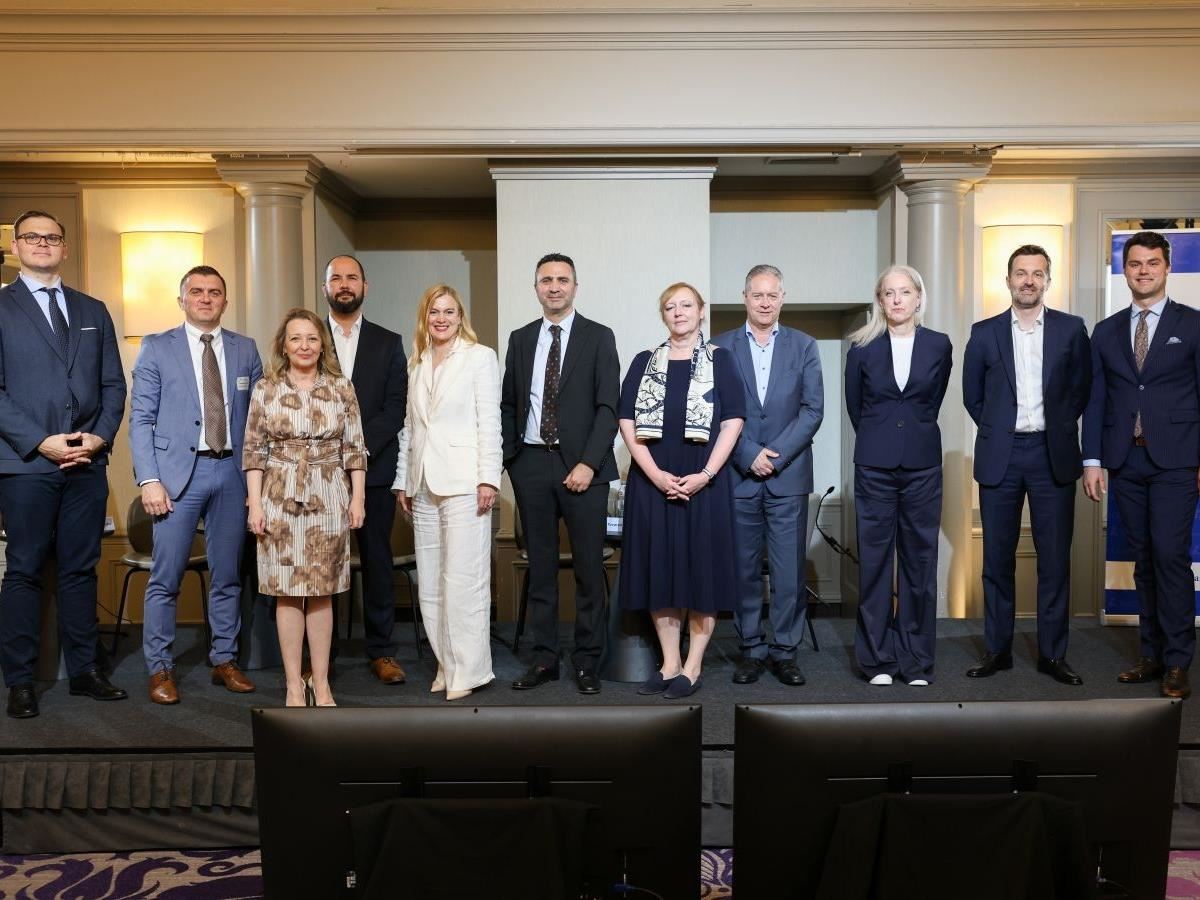Digital Croatia 2030
The American Chamber of Commerce in Croatia hosted the 7th edition of its conference on Croatia’s digital transformation, bringing together 190 key representatives from institutions, the business community, and the media.
The conference discussed the importance of artificial intelligence, cybersecurity, and digital competitiveness.
Andrea Doko Jelušić, Executive Director of AmCham, emphasized that AmCham’s Digital Economy Committee has been actively working for many years on recommendations in the fields of artificial intelligence, the data economy, cybersecurity, and the strategic positioning of the Croatian IT industry.
In her speech, Rina Musić, President of AmCham’s Board of Governors, emphasized that the digital transformation of public administration, the business sector, and society as a whole is of key strategic importance for the further development of Croatia.
“We believe that Croatia can and should play a more active role in shaping policies and the regulatory framework regarding AI at the European level,” said Rina Musić.
In a video address, Minister Damir Habijan outlined several key goals of the digital transformation, which has become part of the portfolio of the Ministry of Justice, Public Administration, and Digital Transformation. He mentioned the integration of the e-Notary system with the court register as one of the innovations, which would make it easier for entrepreneurs to enter and update information in the register, thereby reducing administrative costs.
He also announced improvements to the user inbox for document delivery services on the e-Citizens platform. The Minister highlighted the importance of transposing the EU Artificial Intelligence Act and emphasized the need to find a balance between protecting users and ensuring the security of their data, while also encouraging research and development. Minister Habijan emphasized that the development of the National Artificial Intelligence Development Plan is currently underway, along with a corresponding Action Plan, which will enable a more effective and agile approach to the growing development of artificial intelligence in the upcoming period.
“Through continuous investment, we are building digital public services that are simpler, more reliable, and more accessible – from interoperability and improvements to the e-Citizens system to mobile applications and centralized user support. For us, digital transformation means developing public services that adapt to the users, not the other way around. In this process, partners from the private sector play a key role. Together with them, we are creating space for the implementation of new technologies such as artificial intelligence – not as a trend, but as a tool for a better and more efficient public administration that serves citizens and businesses,” said Ivana Nagy, PhD, Head of Sector for Digital Economy, Ministry of Justice, Public Administration, and Digital Transformation.
Tonko Obuljen, President of the Council, HAKOM, said: “The role of HAKOM as a digital services regulator has significantly expanded in recent years, especially with the implementation of European regulations such as the DSA, DMA, and AI Acts. By the end of the year, the Commission is expected to present its proposal for the new Digital Networks Act (DNA), which aims, among other objectives, to streamline the regulation of electronic communications. For the Republic of Croatia, it is crucial to recognize the importance of a flexible regulatory approach in order to enable effective risk management while simultaneously encouraging innovation and investment in digital technologies.”
The participants of the panel discussion “Competitiveness Through Digitalization” were Ivana Nagy, PhD, Head of Sector for Digital Economy, Ministry of Justice, Public Administration, and Digital Transformation; Alexis Evangelou, Director of Product and Solutions for Europe, Iron Mountain; Mislav Galler, Board Member and Chief Commercial Officer, Telemach; Tina Mirčeta, Senior Managing Consultant, Services Business Development for South East Europe, Mastercard; Blanka Zubalj, Chief Security Officer, RBA, and Ana Kovačević, Head of Specialties and Reinsurance, Marsh Croatia. The panelists agreed that the growing digitalization of business operations contributes to increased exposure to cyber threats and stressed the need to elevate the importance of cybersecurity to a higher level.
The participants in the second panel discussion, “Shaping the Digital Future,” were Tonko Obuljen, President of the Council, HAKOM; Boris Petrušić, Country Leader, Croatia and Cluster Leader Cloud, Oracle; Patrik Tovaryš, Public Policy Manager CEE, META, and Tomislav Vračić, Senior Business Program Manager, Microsoft. They emphasized the importance of increasing the digital maturity of the entire economy in the context of its competitiveness. The participants welcomed the announced streamlining of the EU regulatory framework in the field of digital policies.













